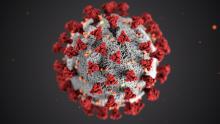INTEGRATE COVID19 statement
INTEGRATE COVID19 statement

The COVID-19 pandemic is at the moment affecting everyone around the world and in light of this, many of the planned INTEGRATE activities and meetings have been put on hold until further notice and in support of the efforts by the EU Commission’s Coronavirus response.
INTEGRATE recognises that many organisations have had to shift their focus to the COVID-19 response, and we stand in solidarity with them as they work on the frontlines of the pandemic. We also recognise that some have had to close their doors during this time and will face uncertainty after the crisis is resolved.
INTEGRATE partners know from past experiences that cutting back on services can increase new infections, stock outs and more stigma. We cannot lose sight of the continued work that needs to be done to prevent the transmission of HIV, viral hepatitis, TB and STIs especially during times of crisis. People vulnerable to these diseases, overlap with groups at-risk of COVID-19 including people living with immune suppression, migrants, people who use drugs, sex workers, people in prisons and closed settings, and people experiencing homelessness. In addition, these groups continue to experience stigma, discrimination and barriers in accessing prevention, testing and care, which will be further worsened by the ongoing crisis.
However, the response to the COVID-19 pandemic could learn from lessons already learned from the HIV, viral hepatitis, TB and STI responses on how to lead effective, community-led and community-influenced efforts to support efforts towards earlier diagnosis.
Therefore, we want to use the upcoming INTEGRATE activity of Spring European Testing Week, planned for 15-22 May 2020, to acknowledge that HIV, viral hepatitis and STI prevention, testing, care and support services are essential services, must continue to be supported and we must all unite to use our diverse expertise, experiences and lessons learned to support efforts against COVID-19.
The Spring European Testing Week will most likely not occur in the same way as previous years but will primarily focus on virtual-based activities. By hosting online and virtual activities, awareness on the importance of services for HIV, viral hepatitis and STIs, especially in times of emergency, can continue in addition to creating a platform for knowledge-sharing of how organisations have adapted services in response to the COVID-19 pandemic.
For more information on how to participate in Spring European Testing Week 2020 and sharing experiences from the HIV, viral hepatitis and STI infectious field to work in unison against COVID-19 visit European Testing Week 2020 – special COVID19 campaign
For more COVID-19 Resources and statements:
COVID-19 in Europe (ECDC | WHO Europe)
COVID-19: Operational guidance for maintaining essential health services during an outbreak (WHO HQ)
COVID-19 European Commission response
COVID-19 and people who use drugs (UNODC | EMCDDA | Correlation – European Harm Reduction Network | INPUD)
COVID-19 and the liver (EASL | EASL-ESCMID)
COVID-19 and people living with HIV (EACS | UNAIDS | IAS)
COVID-19 and people experiencing homelessness (FEANTSA)
COVID-19 and sex workers (ICRSE)
COVID-19 and people in prisons and other closed settings (WHO Europe)
Key recommendations for staff and volunteers on harm reduction services in time of Covid-19 outbreak - developed by INTEGRATE Partners Villa Maraini and Italian Red Cross and their partners in the framework of the Rome consensus humanitarian drug policy
